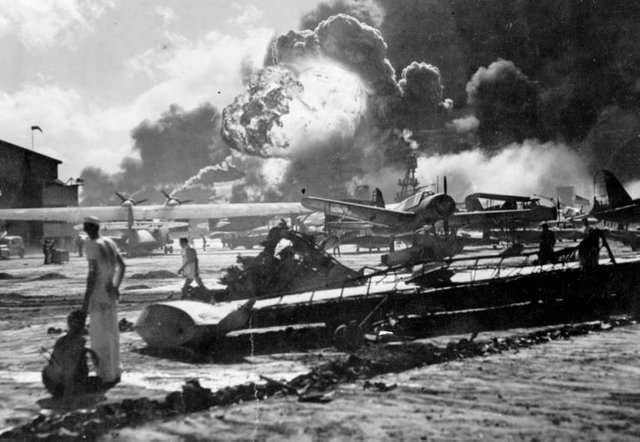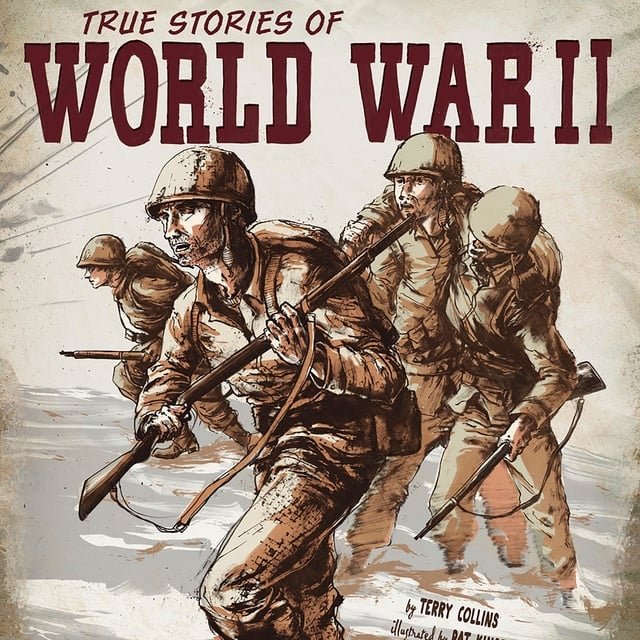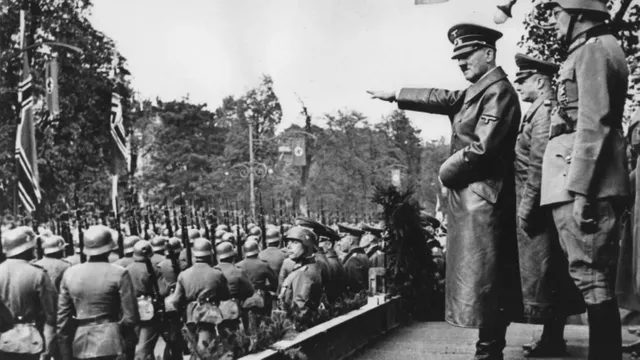A Pivotal Moment in Global History
World War II, often abbreviated as WWII, was a catastrophic and transformative global conflict that occurred from 1939 to 1945. It was the most extensive and destructive war in human history, involving the majority of the world's nations, including all of the major powers, eventually forming two opposing military alliances: the Allies and the Axis. This war had far-reaching consequences, reshaping the political, social, and economic landscapes of the world.

Causes and Prelude to War:
Treaty of Versailles: The Treaty of Versailles, which ended World War I in 1919, imposed harsh conditions on Germany, leading to resentment and economic hardships, ultimately contributing to the rise of Adolf Hitler and the Nazi Party.
Expansionist Agendas: Aggressive expansionist policies by Germany, Italy, and Japan, along with the appeasement policies of the Western democracies, created a volatile international atmosphere.
Invasion of Poland: The war officially began on September 1, 1939, when Nazi Germany, led by Hitler, invaded Poland. In response, Britain and France declared war on Germany, marking the start of World War II.
Key Events and Phases of the War:
The European Theater (1939-1945):
Blitzkrieg in Europe: Germany rapidly conquered much of Europe, including France, Denmark, Norway, and the Low Countries, using the Blitzkrieg (lightning war) strategy.
Battle of Britain: The Royal Air Force successfully defended the United Kingdom against German air raids, leading to the cancellation of Operation Sea Lion, the proposed German invasion of Britain.
Operation Barbarossa: In 1941, Germany invaded the Soviet Union, leading to a brutal and protracted conflict on the Eastern Front.
The Pacific Theater (1937-1945):

Japanese Expansion: Japan's aggressive expansionism led to its invasion of China in 1937 and, later, attacks on U.S. and British territories in the Pacific.
Pearl Harbor: On December 7, 1941, Japan's surprise attack on Pearl Harbor brought the United States into the war.
Island-Hopping Campaign: The United States, with its allies, engaged in a campaign to recapture Pacific islands from Japanese forces, inching closer to Japan's home islands.
The Holocaust:
Nazi Genocide: The Holocaust was the systematic extermination of around six million Jews and millions of others in Nazi concentration and extermination camps.
D-Day and the Allied Liberation of Europe (1944):
Operation Overlord: On June 6, 1944, the Allies launched a massive amphibious assault on the Normandy coast, liberating Western Europe from Nazi occupation.
Conclusion and Aftermath:
World War II culminated in the unconditional surrender of both Nazi Germany in May 1945 and Imperial Japan in September 1945. The war had profound consequences:
The Formation of the United Nations: An international organization was established to promote peace and cooperation among nations, learning from the failures of the League of Nations.
The Beginning of the Cold War: Tensions between the United States and the Soviet Union emerged, leading to the Cold War, a geopolitical standoff that shaped international politics for decades.
Decolonization: The war accelerated the process of decolonization, as European colonial powers were weakened, allowing colonies to seek independence.

The Nuremberg Trials: Prominent Nazi leaders were prosecuted for war crimes and crimes against humanity, setting a precedent for international justice.
Economic and Technological Advances: The war prompted significant technological innovations and spurred post-war economic recovery in many countries.
World War II remains a pivotal event in history, reminding us of the horrors of war and the importance of diplomacy and cooperation to prevent such catastrophic conflicts in the future.
very nice presenting way
f back